If you work in the private sector, your employer may offer a 401(k) as a retirement benefit. The larger the employer, the more likely it is that you can contribute to a 401(k) and enjoy some degree of employer matching, where the company matches your contributions (up to a point!). While 401(k) plans have largely replaced pensions in the private sector, many public sector (government) employees have pensions.
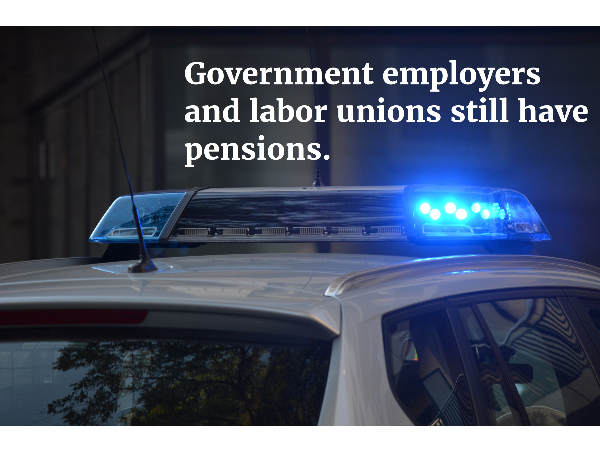
So how is a pension different from a 401(k)?
The biggest difference is that a pension is a defined contribution plan, meaning it pays a fixed amount per month upon retirement. A 401(k) plan provides retirees with a lump sum of earnings generated from years in an investment fund. This is where risk kicks in: a 401(k) may end up generating greater wealth than a pension...or less wealth than a pension. With a pension, the pensioner is legally obligated to receive the fixed payment based on the terms of the plan.
A second difference is that a pension pays a fixed amount monthly for the rest of your life. A 401(k) offers a lump-sum amount, meaning you can access it all at once. Upon retirement, the amount in your 401(k) is what it is - though it can still increase based on growth in the stock market.
There are also some similarities between some pensions and 401(k)s that are worth noting. First, you can take a lump-sum distribution of some pensions, making it like a 401(k) in that you can access all of the money at once. For both a pension and a 401(k), you will want to do some careful financial planning before taking a lump-sum distribution to ensure that you won't run out of money!
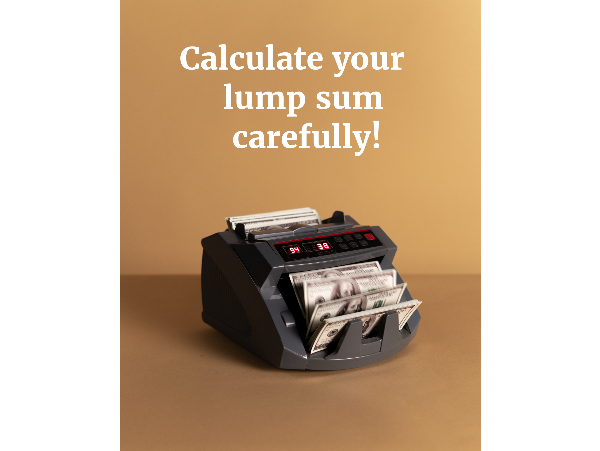
Secondly, both a pension and a 401(k) have a set time by which you must start taking the money. With a 401(k), you are required to take at least the minimum distribution from it per year once you reach age 70. With a pension, you can typically defer it for up to a maximum period, as is the case with the national pension plan that most elderly citizens receive - Social Security.
The final similarity is a big one: For both pensions and 401(k)s, contributions are withdrawn from your paycheck! Therefore, being a public sector employee and receiving a pension does not mean that it is "free money." Fortunately, similar to a 401(k), the public sector employer also contributes some money, making it a "good deal" when it comes to planning for retirement.
BUT, YOU STILL NEED TO INVEST INDEPENDENTLY!
A popular misconception about pensions is that they provide "full pay" for life. This is often inaccurate. Usually, your fixed payment is determined using a multiplier (percentage) of your average salary, combined with your total years of employment. This almost always comes out to be considerably less than your salary upon retirement. So, if you were assuming that your pension alone would maintain your quality of living, it will not!
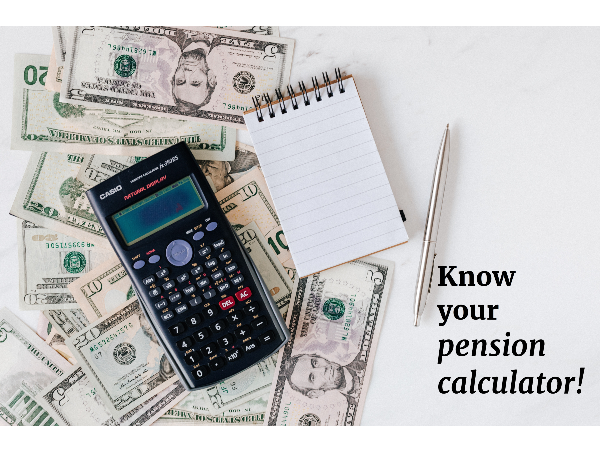
You need to invest on your own to make sure you have an additional source of retirement funds. Similarly, a 401(k) is also typically not enough to maintain your quality of life in retirement. This is because 401(k) plans have annual maximum contributions that may not generate enough wealth over time.
Whether you have a pension plan or a 401(k), you need to be an active investor and be supplementing your employer-provided retirement plan. If you wait until your fifties to start crunching the numbers, you may discover that you're going to come up short! No matter what your boss is contributing toward your retirement, you need to be running your own ground game as well.
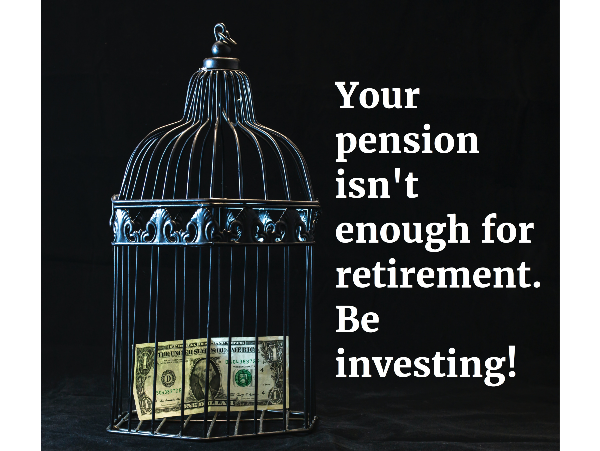


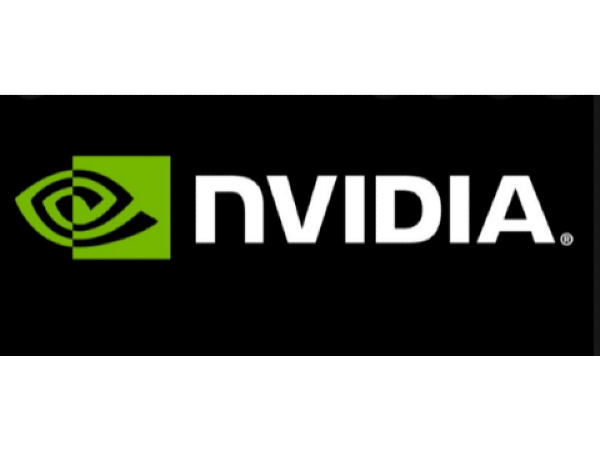















If you work in the private sector, your employer may offer a 401(k) as a retirement benefit. The larger the employer, the more likely it is that you can contribute to a 401(k) and enjoy some degree of employer matching, where the company matches your contributions (up to a point!). While 401(k) plans have largely replaced pensions in the private sector, many public sector (government) employees have pensions.
So how is a pension different from a 401(k)?
The biggest difference is that a pension is a defined contribution plan, meaning it pays a fixed amount per month upon retirement. A 401(k) plan provides retirees with a lump sum of earnings generated from years in an investment fund. This is where risk kicks in: a 401(k) may end up generating greater wealth than a pension...or less wealth than a pension. With a pension, the pensioner is legally obligated to receive the fixed payment based on the terms of the plan.
A second difference is that a pension pays a fixed amount monthly for the rest of your life. A 401(k) offers a lump-sum amount, meaning you can access it all at once. Upon retirement, the amount in your 401(k) is what it is - though it can still increase based on growth in the stock market.
There are also some similarities between some pensions and 401(k)s that are worth noting. First, you can take a lump-sum distribution of some pensions, making it like a 401(k) in that you can access all of the money at once. For both a pension and a 401(k), you will want to do some careful financial planning before taking a lump-sum distribution to ensure that you won't run out of money!
Secondly, both a pension and a 401(k) have a set time by which you must start taking the money. With a 401(k), you are required to take at least the minimum distribution from it per year once you reach age 70. With a pension, you can typically defer it for up to a maximum period, as is the case with the national pension plan that most elderly citizens receive - Social Security.
The final similarity is a big one: For both pensions and 401(k)s, contributions are withdrawn from your paycheck! Therefore, being a public sector employee and receiving a pension does not mean that it is "free money." Fortunately, similar to a 401(k), the public sector employer also contributes some money, making it a "good deal" when it comes to planning for retirement.
BUT, YOU STILL NEED TO INVEST INDEPENDENTLY!
A popular misconception about pensions is that they provide "full pay" for life. This is often inaccurate. Usually, your fixed payment is determined using a multiplier (percentage) of your average salary, combined with your total years of employment. This almost always comes out to be considerably less than your salary upon retirement. So, if you were assuming that your pension alone would maintain your quality of living, it will not!
You need to invest on your own to make sure you have an additional source of retirement funds. Similarly, a 401(k) is also typically not enough to maintain your quality of life in retirement. This is because 401(k) plans have annual maximum contributions that may not generate enough wealth over time.
Whether you have a pension plan or a 401(k), you need to be an active investor and be supplementing your employer-provided retirement plan. If you wait until your fifties to start crunching the numbers, you may discover that you're going to come up short! No matter what your boss is contributing toward your retirement, you need to be running your own ground game as well.